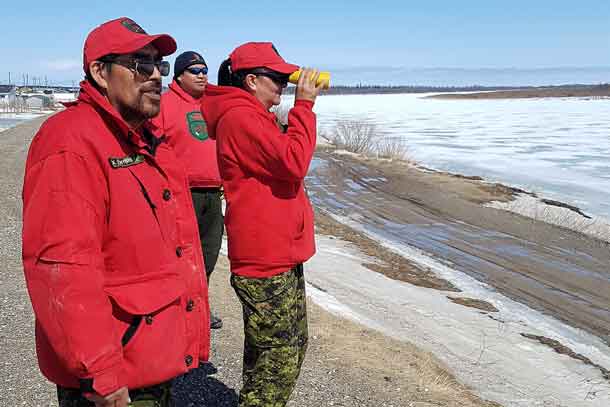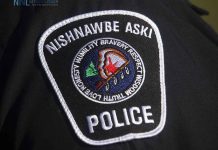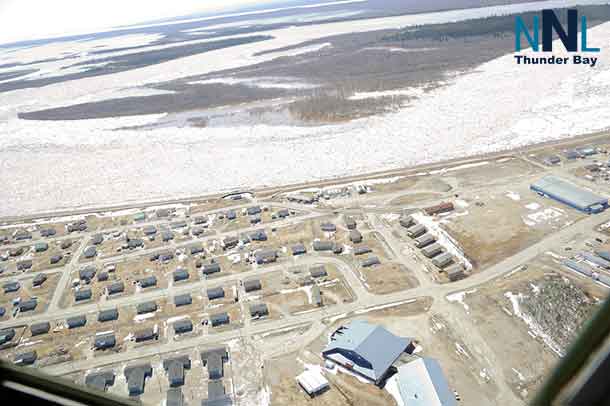

By Peter Moon
KASHECHEWAN – Canadian Rangers from six First Nations did “a real good job” in assisting in the emergency evacuation of Kachechewan First Nation, an isolated Cree community on the Albany River in Northern Ontario.
The Rangers, who are part-time army reservists, became involved in the crisis after the province of Ontario asked the federal government for military assistance after the First Nation declared an emergency.
In the past ice jams have caused the Albany River to overflow its banks and cause serious damage to the settlement on the James Bay coast. When Chief Leo Friday declared an emergency the province began evacuating residents by air on April 16.
He lifted the state of emergency on (Monday after 1,500 of the community’s 1,700 residents had been flown out.
When the emergency was declared, members of the Kashechewan Canadian Ranger patrol, with the assistance of additional Rangers flown in to support them, assumed responsibility for monitoring the ice flow and water levels on the river. They also assisted in the loading of passengers and baggage onto the small evacuation planes, which could only carry up to 50 passengers. They ensured that the sick, elderly, and children were given priority.
With the lifting of the state of emergency the Rangers deployment in Kachechewan came to an end.
The evacuated residents were moved to motels in small southern Ontario communities, where they are being fed and provided with a range of emergency supplies until they can be flown back to their homes.
‘The Rangers did a real good job for us,” Chief Friday said. “They helped a lot of people and they really helped in evacuating the community when we needed help. Our own Rangers did a good job and so did the Rangers from the other communities who came to help us. We’re grateful for all they did for us.”
Rangers from five other First Nations flew to Kachechewan to help. They came from Constance Lake, Fort Albany, Fort Hope, Kingfisher Lake, and Webequie.
“You can only imagine the impression it must have made on the chief,” said Lieutenant-Colonel Matthew Richardson, commanding officer of the Canadian Rangers in Northern Ontario. “He’s busy with an emergency, he’s short handed, and all these Rangers pop off a plane to go and work with his local Rangers to help his people.”
He said the Ranger response to the Kashechewan crisis illustrates their ability to respond quickly and effectively to emergencies in First Nations across Northern Ontario. “I’m proud of the Rangers,” he said. “They’re trained to do this sort of thing and they’ve done a great job.”
The Rangers took over the Kashechewan Fire Hall as a command post and were sleeping in it and eating military field rations.
(Sergeant Peter Moon is the public affairs ranger for the 3rd Canadian Ranger Patrol Group at Canadian Forces Borden.)







